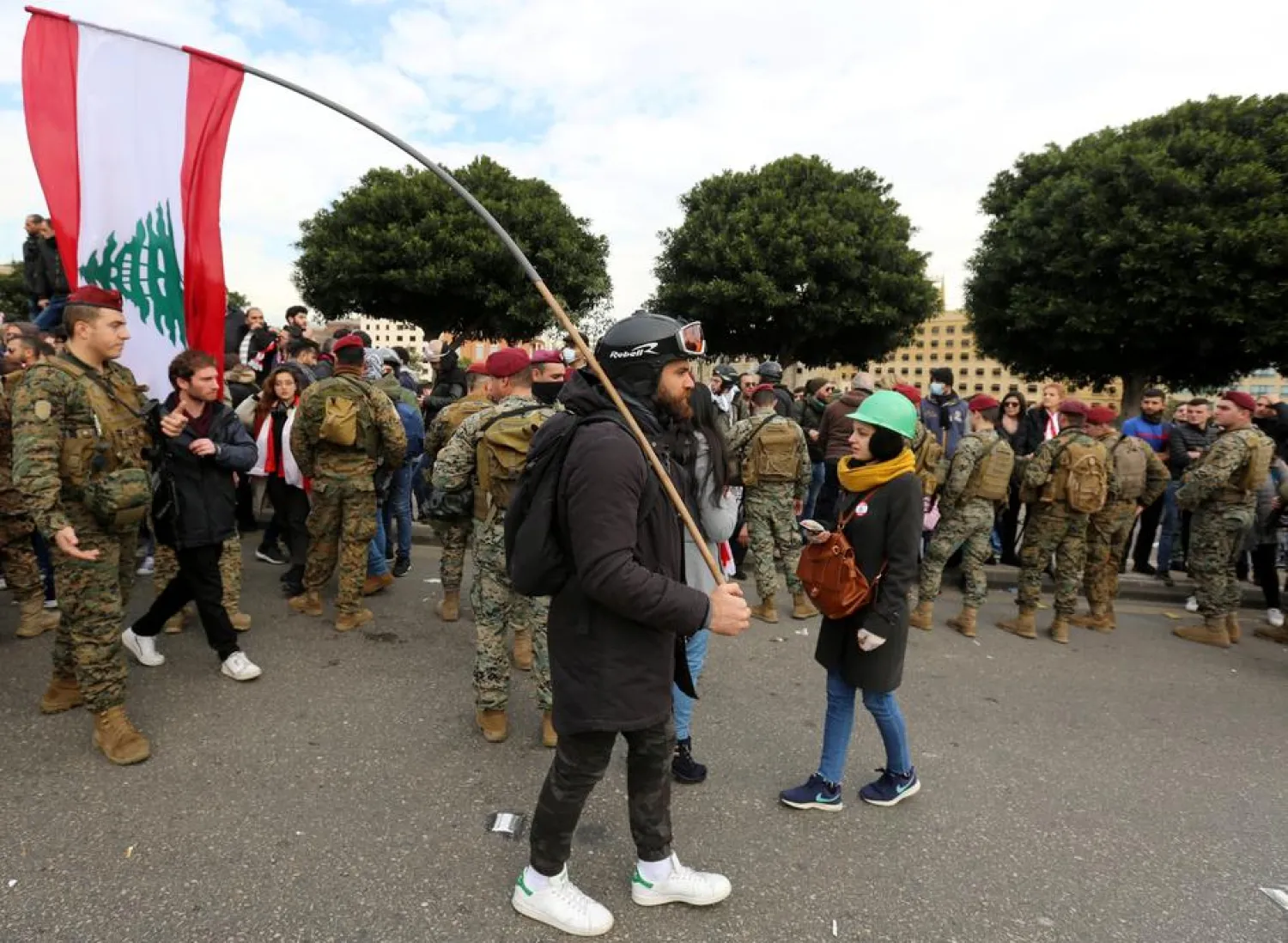Baghdad - A promotional video produced by a local platform and sponsored by several companies has sparked widespread criticism in Iraq over content described as “irresponsible,” according to the Iraqi Writers and Authors Union, for allegedly insulting the “Greatest Arab Poet,” Muhammad Mahdi al-Jawahiri (1899–1997), as well as former royal-era prime minister Nuri al-Said (1888–1958).
Although the production company branded the advertisement “Unified Iraq,” it depicted al-Jawahiri in an AI-generated image serving tea to Prime Minister Mohammed Shia al-Sudani inside his office. In a similar scene, Nuri al-Said was shown serving tea to former parliament speaker Mohammed al-Halbousi, triggering a wave of public outrage.
Alongside the controversy over the AI-generated portrayals of al-Jawahiri and al-Said, another debate erupted after the video showed US Chargé d’Affaires Joshua Harris, British Ambassador Irfan Siddiq, French Ambassador Patrick Durel, and German Ambassador Daniel Krebber at a banquet, appearing to be hosted by Farhad Alaaldin, the Iraqi prime minister’s adviser for foreign affairs.
The advertisement also briefly featured the late Iraqi president, Jalal Talabani, holding an umbrella while walking through the streets of Erbil, the capital of the Kurdistan Region, raising further questions about its purpose.
While the video included a song about “a unified Iraq as a homeland of peace,” critics said its central narrative — built around a homeless young beggar — was confusing and poorly defined. Sources close to the production team told Asharq Al-Awsat that the creators had “their own artistic methods” of expressing the idea.
Government Distances Itself
Amid the mounting backlash, the prime minister’s office expressed rejection of “the virtual video in which al-Jawahiri appeared in a manner inconsistent with the prime minister’s respect and appreciation for his literary and national stature.”
Al-Sudani instructed the Communications and Media Commission to launch an urgent investigation into the entities that produced, promoted, or published the advertisement, citing its alleged offense to cultural icons and state institutions, as well as what he described as the irresponsible and unprofessional use of artificial intelligence technologies.
He also signaled the possibility of legal action against the party responsible for producing what he called “the offensive video against Iraq and its national symbols.”
In contrast, the production company asserted that the PM’s office had prior knowledge of the project, and that the same applied to al-Halbousi. However, sources denied being aware of the inclusion of al-Jawahiri and Nuri al-Said in the work.
The sources also suggested that a government official may have been involved in facilitating the production in cooperation with Al-Bayan University, whose building and offices appeared in the advertisement.
“Deliberate Insult”
The Iraqi Writers and Authors Union condemned what it called an “insult to the immortal al-Jawahiri” after the video showed him serving tea to the prime minister.
In a statement, the union said the act reflected “a deliberate offense to a poet distinguished by his immense cultural and moral value, and his well-known national and humanitarian positions.”
It urged relevant authorities to take a firm and deterrent stance against “irresponsible acts aimed at distorting facts and undermining Iraq’s national symbols.”
The union added that al-Jawahiri remained a national symbol “we proudly present to the world and refuse to see insulted by any party.”
The union was founded in al-Jawahiri’s home in 1959 and he became Iraq’s first journalists’ syndicate head the same year.
Claims of Prior Approvals
Facing intense criticism, the advertisement’s author and head of the production company said all participating political figures had approved the details of the project and filming inside their offices.
She stated that the scenes featuring al-Sudani and al-Halbousi were real, with only the figures of al-Jawahiri and Nuri al-Said later added using artificial intelligence.
In a statement on Instagram, al-Jumaili said the project took two months to complete and was reviewed by several international parties before being shown in Iraq, adding that “no step was taken without official approvals.” She did not specify the nature of those entities or whether the political figures were aware of the AI portrayals alongside them.
She argued that the backlash was politically driven and overlooked the advertisement’s positive messages, later explaining that the tea-serving scenes symbolized a “national identity” passed from past intellectual and political leaders to a new generation of leaders.









